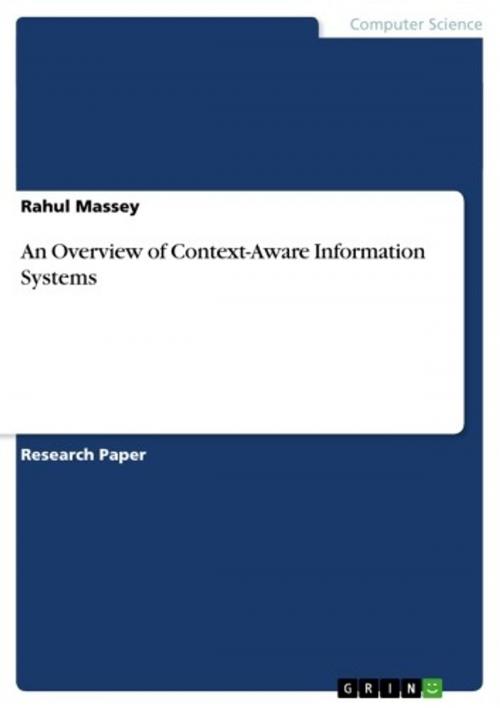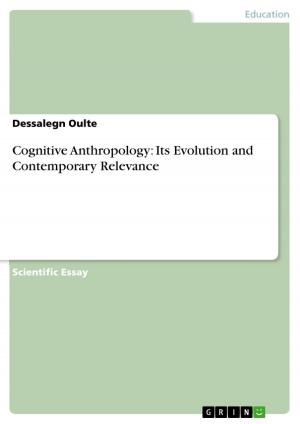An Overview of Context-Aware Information Systems
Business & Finance, Industries & Professions, Information Management| Author: | Rahul Massey | ISBN: | 9783640344703 |
| Publisher: | GRIN Publishing | Publication: | June 10, 2009 |
| Imprint: | GRIN Publishing | Language: | English |
| Author: | Rahul Massey |
| ISBN: | 9783640344703 |
| Publisher: | GRIN Publishing |
| Publication: | June 10, 2009 |
| Imprint: | GRIN Publishing |
| Language: | English |
Research Paper (postgraduate) from the year 2009 in the subject Information Management, grade: 2:2, The University of Liverpool, course: MSc in Information Technology, language: English, abstract: The ever-growing incorporation of information technology in day-to-day applications presents new opportunities to develop computer systems that can be aware of the context in which they are operating. Such computer-systems can be inherently more responsive to the expectations of their users. Context-aware systems offer developers and programmers exciting new prospects to gather contextual data and adapt the behavior of their dynamic systems according to user expectations. In conjunction with mobile devices, such mechanisms can be extremely valuable in increasing the usability of information systems. However, it is now accepted widely that the efforts to adapt the usability and capability of the desktop PC in to the mobile environment are limited in their scope. The debate in present literature seems to focus in particular on the trade-offs and compromises between the performance of such systems in theoretical or laboratory environments, and the actual results when tested in the field. This essay will aim to critically evaluate the success of making context-aware information systems into a feasible reality.
Research Paper (postgraduate) from the year 2009 in the subject Information Management, grade: 2:2, The University of Liverpool, course: MSc in Information Technology, language: English, abstract: The ever-growing incorporation of information technology in day-to-day applications presents new opportunities to develop computer systems that can be aware of the context in which they are operating. Such computer-systems can be inherently more responsive to the expectations of their users. Context-aware systems offer developers and programmers exciting new prospects to gather contextual data and adapt the behavior of their dynamic systems according to user expectations. In conjunction with mobile devices, such mechanisms can be extremely valuable in increasing the usability of information systems. However, it is now accepted widely that the efforts to adapt the usability and capability of the desktop PC in to the mobile environment are limited in their scope. The debate in present literature seems to focus in particular on the trade-offs and compromises between the performance of such systems in theoretical or laboratory environments, and the actual results when tested in the field. This essay will aim to critically evaluate the success of making context-aware information systems into a feasible reality.















